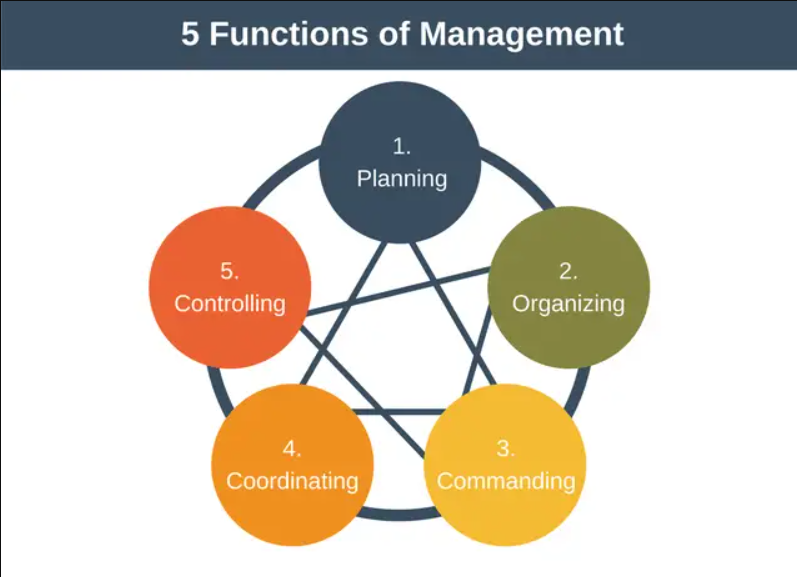According to Fayol, management involves five key functions that are crucial to achieving organizational objectives. These five functions are:

1. Planning
-
Definition: Planning involves setting goals, defining strategies, and determining the actions required to achieve those goals.
-
Importance: It helps managers anticipate future conditions, foresee challenges, and outline steps for the organization’s growth and progress.
-
Example: A company plans its production schedule, marketing strategies, and financial forecasts to ensure future success.
2. Organizing
-
Definition: Organizing refers to arranging resources (human, financial, physical) and tasks in such a way that the organization can achieve its objectives.
-
Importance: It ensures that resources are used effectively, and it creates a structure to facilitate coordination and task delegation.
-
Example: A manager creates teams, assigns responsibilities, and arranges the workflow in a company to optimize productivity.
3. Commanding (Leading)
-
Definition: Commanding or leading is the act of directing and motivating employees to achieve the organization’s goals.
-
Importance: A good leader provides guidance, communicates effectively, and inspires the team to perform well.
-
Example: A manager motivates their team during a project, resolves conflicts, and ensures everyone stays on task.
4. Coordinating
-
Definition: Coordinating involves ensuring that different parts of the organization work together efficiently.
-
Importance: Coordination ensures that all departments or functions work harmoniously to achieve organizational goals.
-
Example: The marketing department coordinates with the sales and production departments to ensure that promotional campaigns align with product availability.
5. Controlling
-
Definition: Controlling involves monitoring and evaluating the progress toward the goals, ensuring that everything is on track.
-
Importance: It helps identify any deviations from the plan and makes it possible to take corrective actions.
-
Example: A manager reviews financial statements to ensure the company is meeting its budget and takes corrective action if expenses exceed projections.
Fayol’s functions of management emphasize a systematic and comprehensive approach to managing an organization.
These functions work together to ensure that resources are used effectively, employees are motivated, and the organization stays on course to meet its objectives.